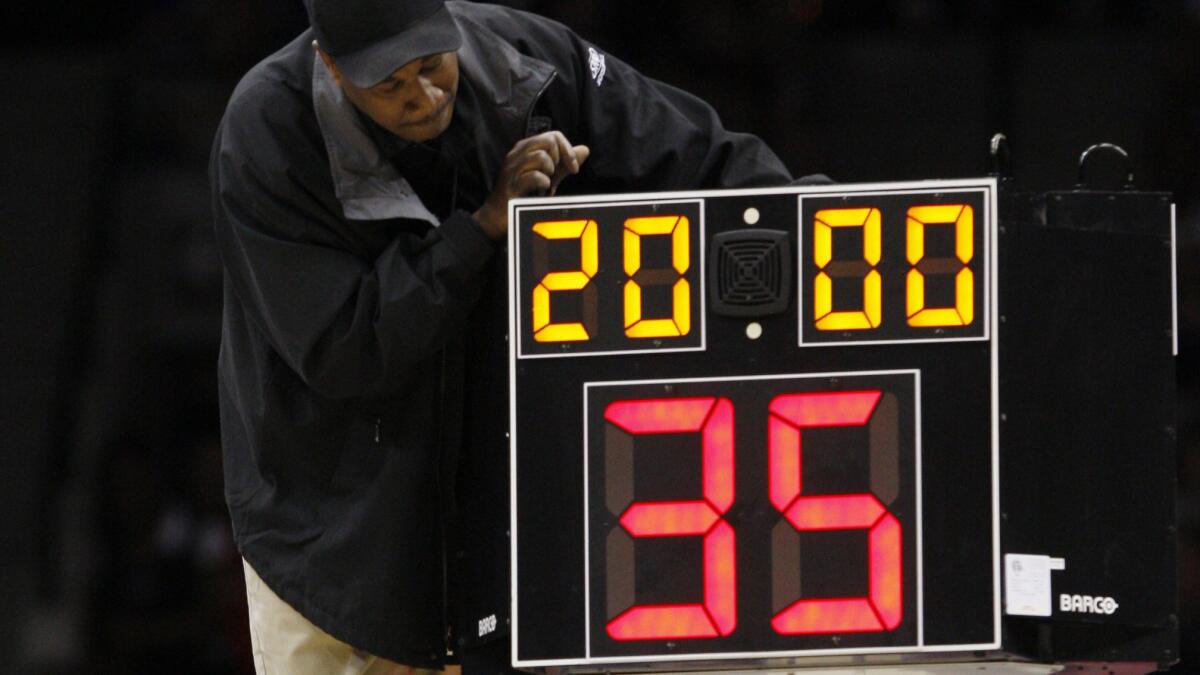NCAA approves new men’s basketball rules, adopts 30-second shot clock

A technician adjusts a shot clock during an
- Share via
The NCAA adopted several new rules for men’s college basketball on Monday, including a 30-second shot clock designed to speed up the game.
The changes, which go into effect next season, were approved by the NCAA Playing Rules Oversight Panel. The new rules were anticipated after the NCAA men’s basketball rules committee recommended the changes last month.
In addition to reducing the shot clock from 35 to 30 seconds, teams will be limited to four timeouts instead of five and no more than three can carry over from the first to second half. Also, the restricted-area arc in front of the basket has been increased a foot to four feet.
The NCAA also announced changes for women’s basketball next season, saying it will adopt a new 10-minute quarter format in tandem with new rules regarding ball advancement and 10-second backcourt exemptions.
The shorter shot clock and the increase in the restricted arc should help speed up men’s games and increase scoring. Scoring in men’s college basketball hit an all-time low in 2012-13 when teams averaged 67.5 points per game. Last season, teams fared only a fraction of a point better at 67.6 points per game.
The decision marks college basketball’s first change to the shot clock since 1993, when it was reduced from 45 to 35 seconds.
A 30-second shot clock was used as an experiment during the NIT, CBI and CIT postseason tournaments in March.
More to Read
Go beyond the scoreboard
Get the latest on L.A.'s teams in the daily Sports Report newsletter.
You may occasionally receive promotional content from the Los Angeles Times.











